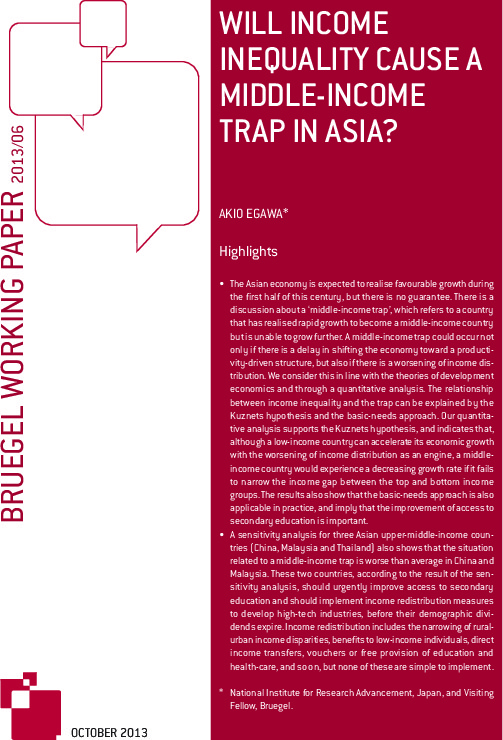External authors

Akio Egawa
Akio Egawa is a Japanese citizen and a visiting fellow at Bruegel from 3 June to 7 October 2013.
His research interests include the economic connectivity and income inequality in Asia, and Japanese macroeconomic policies. His research topic at Bruegel is Japan’s experience of building economic relationship with Asia and its applicability to the EU.
Akio holds a master degree from University of London, SOAS. He worked as a government officer in Economic Planning Agency since 1995, and dealt with coordinating international and bilateral economic consultations, writing annual report on world economy, and coordinating official development assistances. In 2006, he joined the diplomatic mission at the Embassy of Japan in Thailand. After working with Japan’s economic and fiscal policy planning since 2009, he currently serves in National Institute for Research Advancement and is responsible for the research on Japan’s new Asia strategy for a mutual win-win game.
